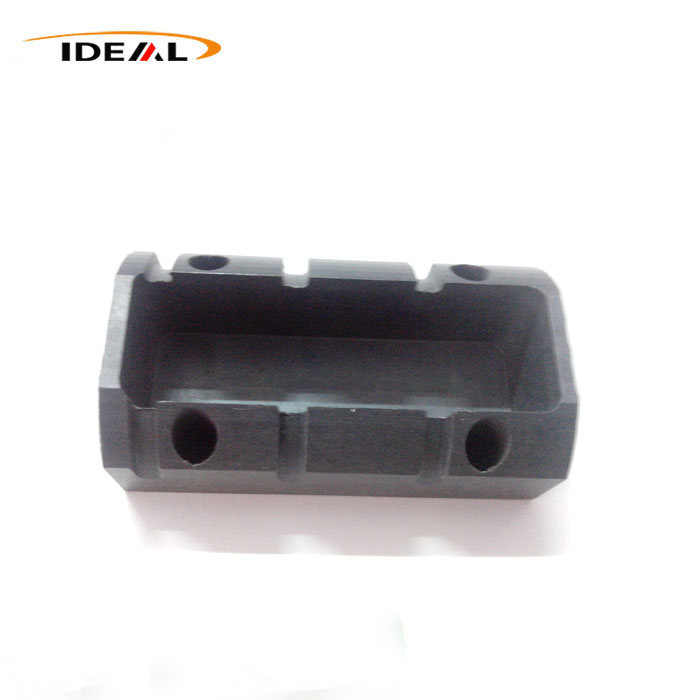PPS Machined Parts: The Durable Solution for High-Performance Applications
2025-03-20
In the world of manufacturing and engineering, selecting the right material for machining is crucial to the success of any project. Among the various materials used, PPS (Polyphenylene Sulfide) stands out for its exceptional properties, particularly in high-performance environments. When machined into parts, PPS offers a combination of strength, heat resistance, and chemical stability, making it an ideal choice for a wide range of industrial applications.
In this blog, we will explore the benefits and uses of PPS machined parts, the advantages they bring to various industries, and why they are becoming increasingly popular in demanding environments.
What Are PPS Machined Parts?
PPS (Polyphenylene Sulfide) is a high-performance, thermoplastic polymer known for its outstanding thermal stability, chemical resistance, and mechanical strength. When this material is machined into precise components, it results in PPS machined parts that are used in applications where traditional materials, like metals or standard plastics, might fail due to their limitations.
PPS is often used to produce gears, bearings, seals, valve seats, and electrical components. Its superior properties make it especially useful in industries like automotive, aerospace, chemical processing, and electronics.
Benefits of PPS Machined Parts
1. Exceptional Heat Resistance
One of the key features of PPS is its ability to withstand high temperatures. It has a high melting point, typically around 280°C (536°F), and retains its mechanical properties even at elevated temperatures. This makes PPS an excellent material for components that will be exposed to heat, such as those used in automotive engines, industrial machinery, and electrical devices.
2. Chemical Resistance
PPS is highly resistant to a wide range of chemicals, including acids, alkalis, and organic solvents. This property makes it suitable for environments where chemical exposure is a concern, such as in chemical processing plants, pharmaceutical manufacturing, and petrochemical industries. Machined parts made from PPS can stand up to harsh chemicals without degrading, ensuring long-lasting performance in demanding conditions.
3. Mechanical Strength and Durability
PPS boasts excellent mechanical strength, rigidity, and dimensional stability. It can maintain its shape and strength even when subjected to stress or pressure, making it ideal for components like bearings, gears, and valve components. These parts are highly durable and can withstand constant wear and tear in high-performance applications.
4. Electrical Insulation Properties
In addition to its physical properties, PPS is a good electrical insulator. This makes it particularly valuable in the electronics and electrical industries for applications such as connectors, switches, and insulating parts. PPS parts provide reliable electrical insulation in components that operate in harsh environments or require high dielectric strength.
5. Low Friction and Wear Resistance
Another significant advantage of PPS is its low friction coefficient, which helps in reducing wear and tear on moving components. This makes PPS a preferred material for applications involving sliding, rotating, or interacting parts like bearings, gears, and seals. The material's ability to reduce friction extends the lifespan of components, improving overall system efficiency.
Applications of PPS Machined Parts
1. Automotive Industry
In the automotive industry, PPS machined parts are used in a variety of components, such as fuel system parts, gaskets, valve seats, and electrical connectors. The material's heat resistance and chemical stability make it ideal for components that must perform under the high stress and temperature fluctuations found in modern vehicles.
2. Aerospace Industry
In aerospace, PPS machined parts are valued for their lightweight and high-strength properties. They are used in critical applications like aircraft engines, fuel systems, and landing gear components. The material's resistance to heat and chemicals ensures that aerospace parts continue to perform reliably in extreme environments.
3. Chemical and Pharmaceutical Industries
The chemical resistance of PPS makes it an ideal choice for parts used in the chemical and pharmaceutical industries. PPS machined components, such as valve seats, pumps, and seals, are used to handle aggressive chemicals and solvents. The material’s ability to maintain integrity in these environments ensures the safety and efficiency of critical systems.
4. Electronics and Electrical Applications
PPS is widely used in the electronics industry due to its electrical insulating properties. Components like circuit boards, switches, and connectors made from PPS ensure reliable electrical performance, especially in systems that are exposed to high temperatures or harsh environmental conditions.
5. Industrial Machinery
PPS machined parts are commonly used in industrial machinery for components like bearings, gears, and seals. The low friction and wear resistance of PPS help improve the efficiency and longevity of industrial machines, reducing the need for frequent replacements and maintenance.
Why Choose PPS for Machined Parts?
1. High-Performance Characteristics
PPS offers a unique combination of properties that make it suitable for high-performance applications. Its thermal stability, chemical resistance, and mechanical strength make it a go-to material for industries where other materials may fail under extreme conditions.
2. Long-Term Durability
PPS machined parts are built to last. The material's resistance to wear, heat, and chemicals ensures that parts maintain their performance and integrity over time, reducing the need for costly repairs and replacements.
3. Customization Options
PPS is versatile and can be easily machined into various shapes and sizes, allowing for customized parts that meet specific requirements. Whether you need precision-engineered components or parts with complex geometries, PPS can be tailored to fit your needs.
Conclusion
PPS machined parts are a critical component in a variety of industries due to their outstanding performance, durability, and resistance to extreme conditions. From automotive and aerospace to chemical processing and electronics, PPS parts provide an effective solution for demanding applications.
By choosing PPS for your machining needs, you are ensuring that your components will perform reliably under high stress, high temperature, and chemical exposure, making it a smart investment for any business looking for durable and high-performance solutions. Whether you’re involved in manufacturing, engineering, or product design, incorporating PPS machined parts can help you meet the rigorous demands of your industry with confidence.



